OUR DOOR IS ALWAYS OPEN
For more information about designing safe Mental Health spaces and reducing ligature risk within Mental Health facilities, call us on 0330 058 0988 or send us an email.
For more information about designing safe Mental Health spaces and reducing ligature risk within Mental Health facilities, call us on 0330 058 0988 or send us an email.
You can change your preferences or unsubscribe at any time. You agree to Safehinge Primera using your personal data in accordance with our privacy policy. We use your data to personalise and improve your experience on our digital platforms, provide products and services you request from us, and carry out research. We will never sell your personal data to third parties.
You can change your preferences or unsubscribe at any time. You agree to Safehinge Primera using your personal data in accordance with our privacy policy. We use your data to personalise and improve your experience on our digital platforms, provide products and services you request from us, and carry out market research. We will never sell your personal data to third parties.
A balance between physical and psychological safety is vital in inpatient Mental Health settings. Patients in these environments are going through a vulnerable time, and it is critical that their environment keeps them safe and secure while providing a therapeutic environment designed to support recovery.
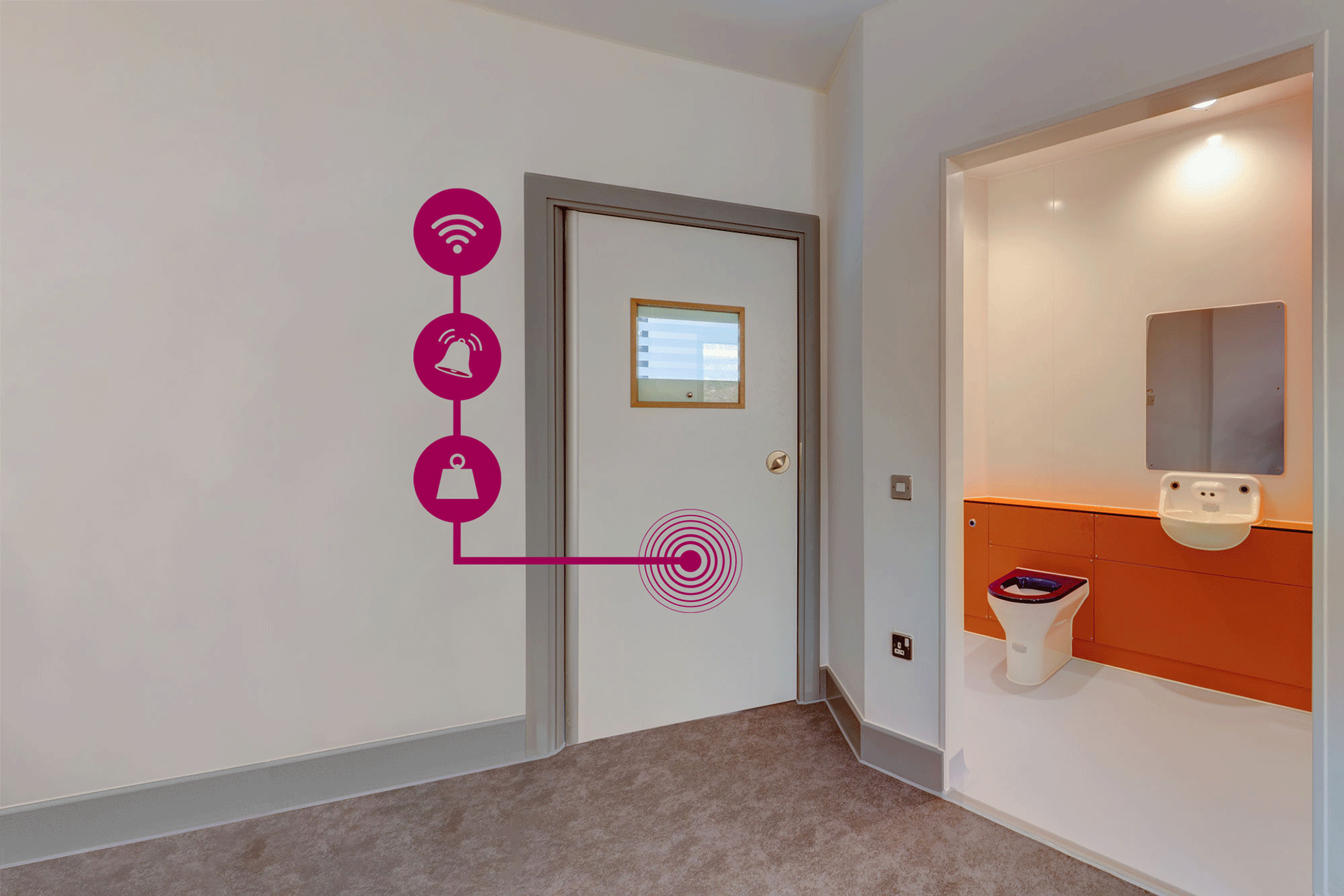
When creating a new Mental Health facility or renovating an existing site, prioritising the physical safety of patients and staff is crucial. It is essential to incorporate anti-ligature products into the design of the space and consider other potential risks, such as self-harm through the ingestion of hazardous substances or the use of weapons.
To guarantee the utmost level of safety, it is imperative to consider product testing and accreditations carefully. In addition to robust in-house testing, we always recommend looking for products certified by independent testing organisations. Some of those for anti-ligature testing include BRE, OMH-NY and Door & Hardware Federation.
In the past, when it came to designing and building Mental Health facilities, physical safety took precedence over psychological safety. Consequently, these spaces often had an institutional appearance, with abundant metal fixtures and fittings.
However, there has been a shift in the industry's perspective, recognising that psychological safety is equally as vital as physical safety. Creating an environment that fosters privacy and dignity while ensuring safety is essential to support patients' recovery. Safehinge Primera’s products are all designed with these considerations in mind to create healing environments to aid the recovery of patients.
Incorporating practices such as independent patient access and therapeutic artwork can be instrumental in achieving this goal. These design elements help create a safe and inviting space that promotes a sense of calm and positivity, which can ultimately contribute to the overall success of treatment. As such, the emphasis on psychological safety is gradually becoming a more prominent aspect of Mental Health facility design.
At Safehinge Primera, we design products to minimise the traditional institutional look and feel. We also partner with a UK Mental Health Charity called Hospital Rooms, with the key focus of transforming inpatient environments into spaces that facilitate creativity, hope and healing. Original artworks from outstanding artists feature on our Bathroom Ensuite Doors.
Together, we are transforming cold and institutional Mental Health environments into places that aid recovery by introducing therapeutic art.
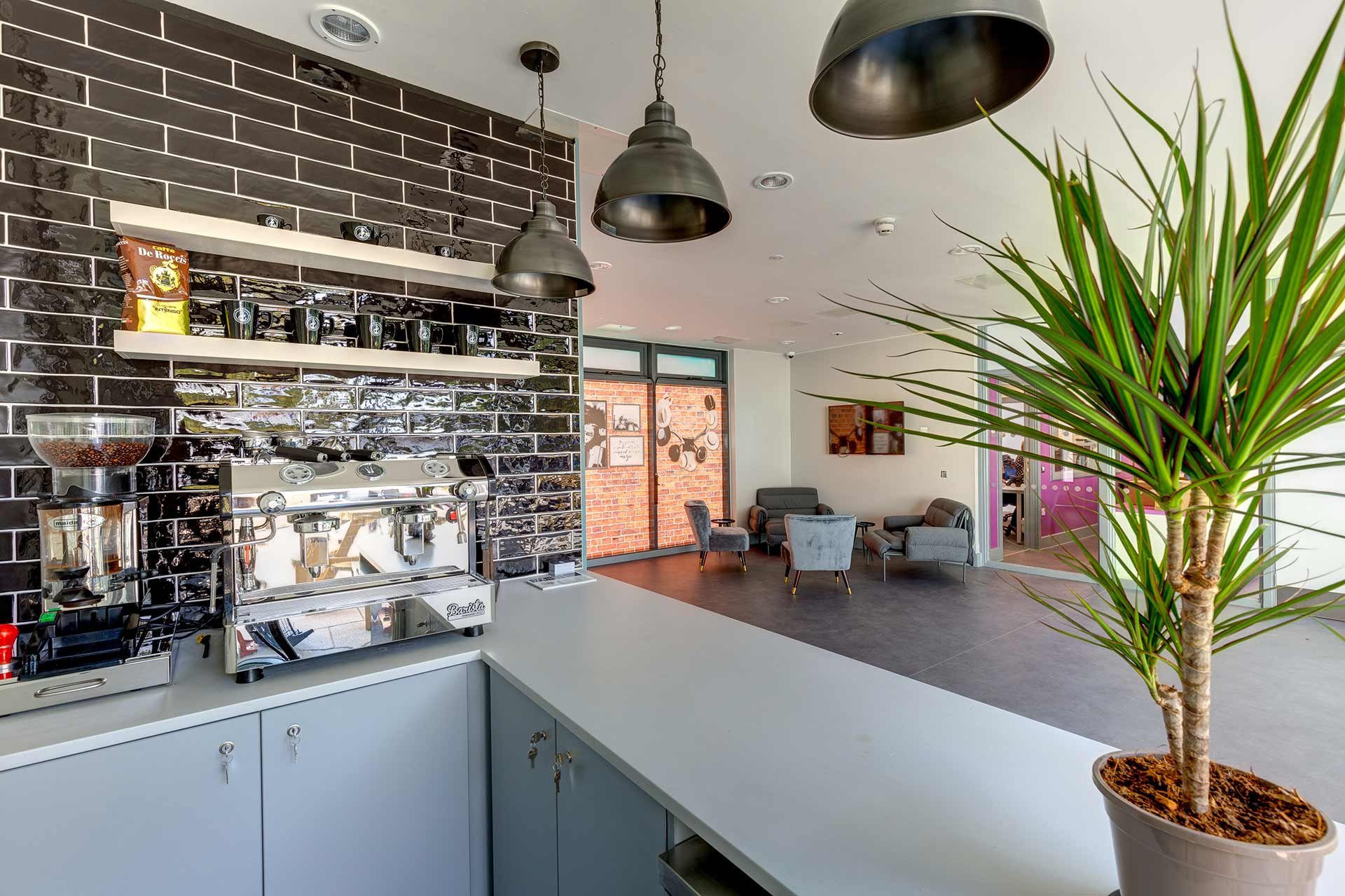
Anti-ligature considerations in Mental Health facilities are challenging. There is much to consider from various perspectives, such as physical and psychological safety, ward operations and testing/accreditations.
Mental Health wards are busy and challenging environments, so we must ensure the products we design and develop are safe, look good, provide comfort, and work operationally in the busy ward.
Providing anti-ligature support in healthcare facilities means that nurses and ward operations can help ensure the safety of patients at risk of self-harm or suicide.
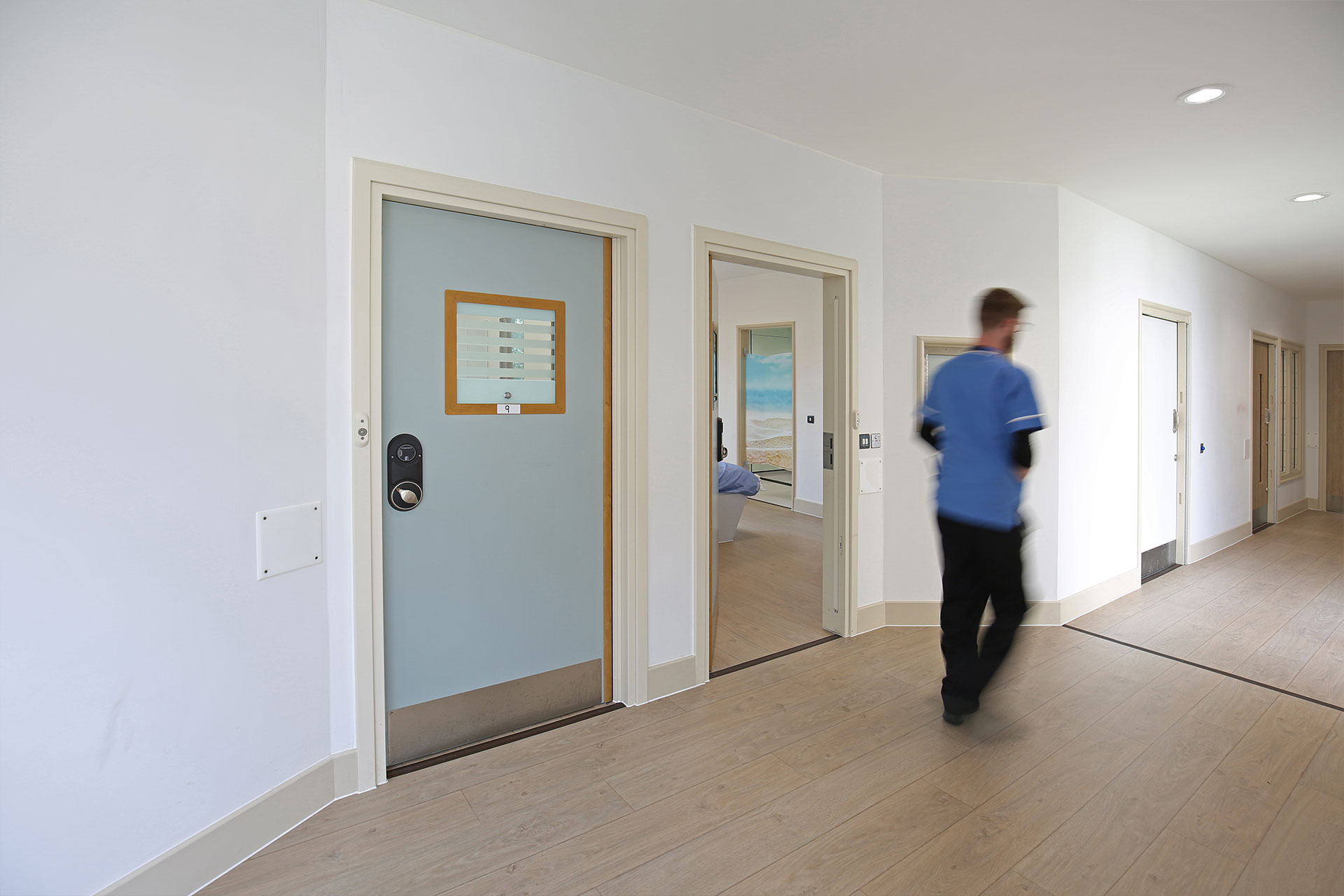
By reducing the risk of ligature points, mental healthcare facilities can help improve the safety of patients at risk of self-harm or suicide. By removing the opportunity to use ligatures to inflict harm, anti-ligature products can significantly reduce the risk of patient injury and death. They can also ensure the safety of clinical staff and patients by reducing the risks of barricades and weaponisation that still exist within inpatient mental health environments today.
By adopting complete safety solutions like Anti-Barricade Doorset equipped with Full-Door Ligature Alarm, you can significantly reduce those risks for patients and ensure that healthcare providers can deliver safe and effective care.
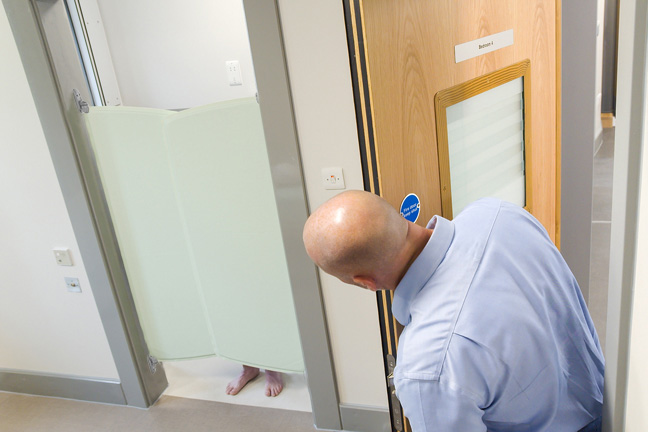
Anti-ligature products help to reduce the risk of injury to patients who may accidentally come into contact with ligature points, such as door handles or curtain rods.
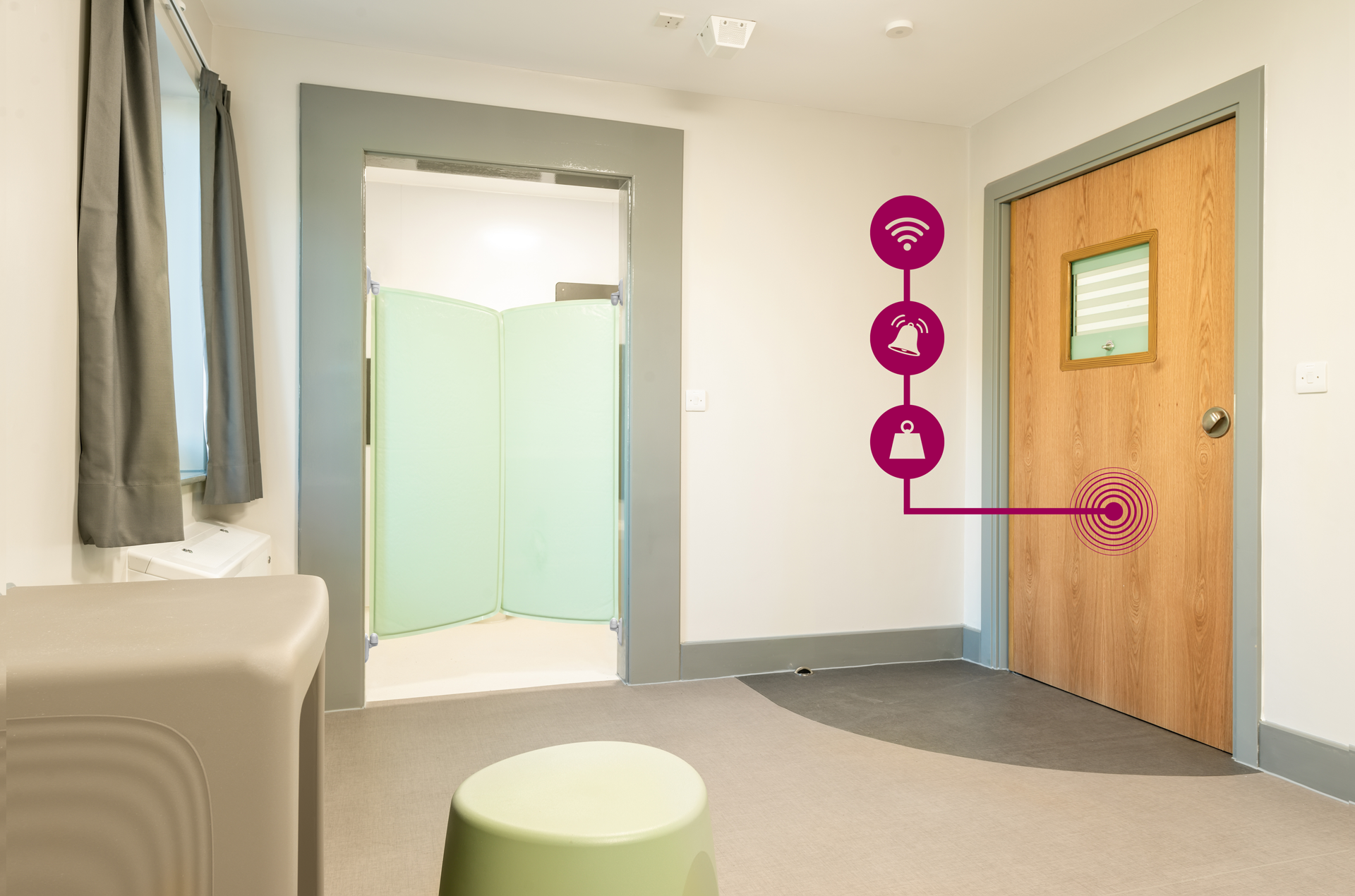
Clinical staff are not able to be everywhere at all times. However, the Full-Door Ligature Alarm provides a solution by rapidly notifying the nearest nursing station when a ligature is being attempted. This helps to address any potential blind spots between observations.
Anti-ligature products, like the Ensuire Door, can also help nurses and other staff to improve the supervision of patients, particularly those at risk of self-harm or suicide.

Incorporating anti-ligature considerations into the design of Mental Health facilities means that ward managers can more efficiently manage the facility and reduce the need for ongoing monitoring and maintenance of ligature points.
Overall, anti-ligature products can help to improve patient safety and reduce the risk of self-harm or suicide in healthcare facilities. By incorporating these features into their design, healthcare facilities can better support the work of nurses and ward operations and provide a safer environment for patients. All employees have a statutory duty to safeguard and promote the welfare of children and vulnerable adults.
Staff on the ward complete an assessment of patients' risk when they join the ward, which includes some of the following considerations:
These factors are regularly reviewed and reported on as part of ward safety.
Some examples of how anti-ligature design can support facility management include the Anti-Barricade Electronic Lockset that eliminates the need for nurses to carry a bunch of keys, and the Ligature Door Alarm supports the clinical observation.
Regarding anti-ligature products, independent testing is vital, especially as these products are designed to save lives in Mental Health units. Our handles are robust, anti-ligature, independently tested, and proven effective in various Mental Health environments, accommodating users' needs with varying strength and manual dexterity.
While there is currently no official UK standard for anti-ligature products, the Door and Hardware Federation has created specification TS001, which the Guild of Architectural Ironmongers has adopted to assess ligature risk in particular care environments.
Additionally, the BRE Group, in collaboration with Design in Mental Health Network (DIMHN), has developed a detailed testing guide to prevent self-harm and reduce the risk of hanging, promoting innovation and encouraging the use of independent and repeatable testing formats to assess the safety of new and existing products. The Testing Guide provides testing methodologies for materials, fixtures and hardware specifically designed for use within Mental Health care facilities.
Look for companies that offer additional internal testing to ensure the highest level of safety:
We're all greatly affected by our surroundings. They can have a profound impact on our moods, thoughts and feelings.
Hospital Rooms are a UK-based charity that transforms Mental Health wards into uplifting, artistic environments through the use of carefully selected artworks and design interventions. Their mission is to enhance the well-being of patients and staff in clinical settings by creating beautiful and inspiring spaces. Hospital Rooms collaborates with leading artists, architects, and designers to create site-specific artworks that promote healing and positivity. Through their innovative approach, Hospital Rooms aims to improve the quality of life for those in Mental Health care.
Safehinge Primera partnered with Hospital Rooms back in 2021 to incorporate two of their original artworks into award-winning Anti-Ligature En-Suite Doors. Art has the power to transform and humanise any harsh clinical environment, and so it gives us great pride to have partnered with this unique arts and Mental Health charity.
By printing original Hospital Rooms artworks onto our en-suite doors, we're combining safety with expression, choice and creativity. In addition to our existing range of prints available for our en-suite doors, <RBAY/\VBS> by Charley Peters and Flags and Flares by Tim A Shaw have been added.
Read Safehinge Primera & Hospital Rooms Collaboration Story and discover the healing power of art.
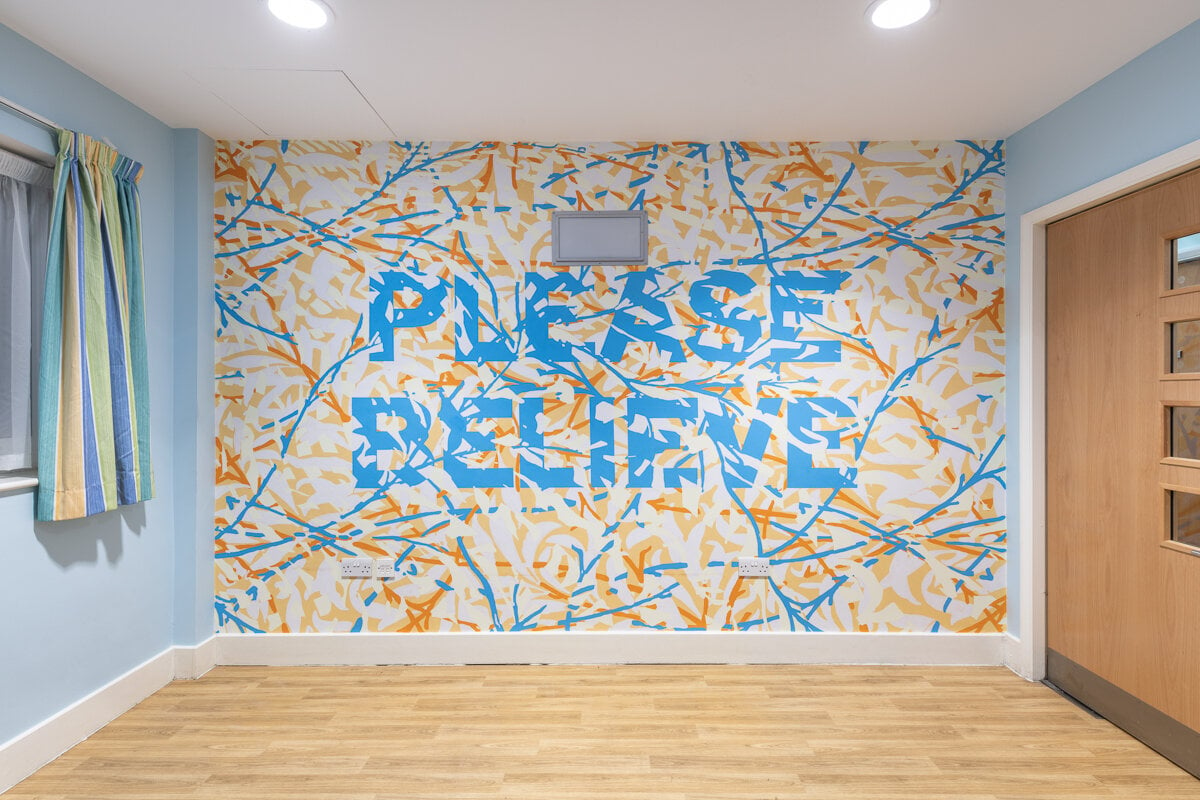
When it comes to Mental Health environments, safety is always a top priority.
That's why choosing the right products is essential to ensure the well-being of patients and staff. At Safehinge Primera, we take pride in offering a wide range of innovative and high-quality anti-ligature products designed to meet the diverse needs of Mental Health facilities. Providing peace of mind for patients and caregivers, our door systems (including ligature door alarms, anti-barricade doorsets, load-release fixings, door locksets & handles, and other anti-ligature products) have been tested by independent testing organisations, proven effective, and compliant with the latest technical standards.
UK - Glasgow
44 Speirs Wharf
Glasgow
G4 9TH
t: +44 330 058 0988
e: info@safehingeprimera.com
UK - Blackpool
Unit 8 Bankfield House
250 Bristol Avenue
Blackpool
FY2 0JF
t: +44 330 058 0988
e: sales@safehingeprimera.com
USA - Boston MA
177 Huntington Ave
17th Floor
Boston
MA. 02115
t: +1 347. 506. 2114
e: inquiries@safehingeprimera.com
AU - Hipac Head Office
36 Long Street
Goulburn
New South Wales
Australia 2580
UK - Glasgow
44 Speirs Wharf
Glasgow
G4 9TH
t: +44 330 058 0988
e: info@safehingeprimera.com
UK - Blackpool
Unit 8 Bankfield House
250 Bristol Avenue
Blackpool
FY2 0JF
t: +44 330 058 0988
e: sales@safehingeprimera.com
USA - Boston MA
177 Huntington Ave
17th Floor
Boston
MA. 02115
t: +1 347. 378. 0174
e: inquiries@safehingeprimera.com
© Safehinge Primera 2023. Design By Submarine. Development By Crocodiles